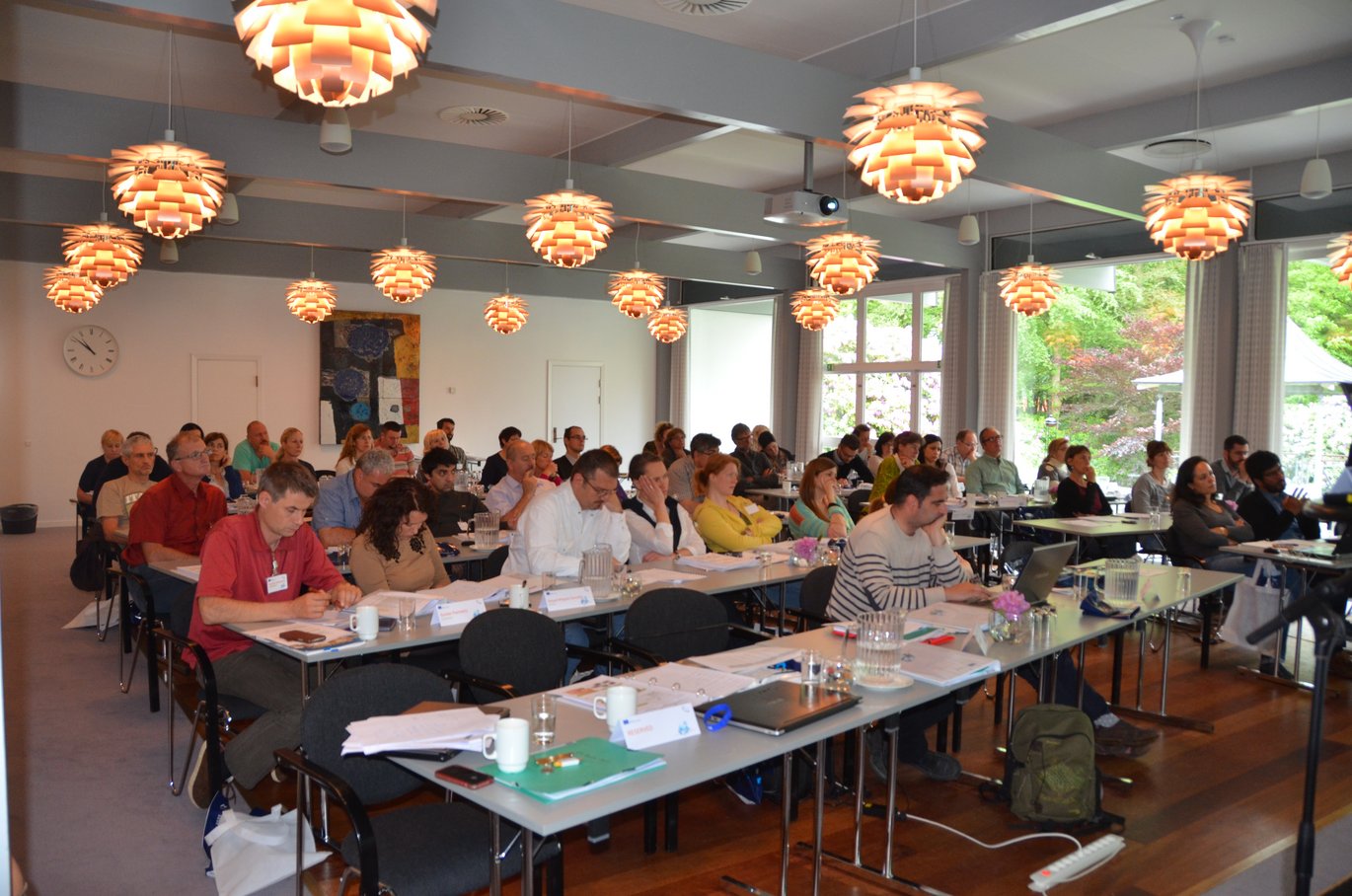International collaboration on supplementary training of EU inspectors in welfare for pigs
Since 2013, scientists from the Department of Animal Science have participated actively in the planning of courses and education of participants at supplementary training courses for EU inspectors. The courses are provided as part of the aim of the EU Commission to improve the welfare of pigs in the EU.

When inspectors in the different EU countries check up on EU’s directives for the welfare of pigs, does it happen in the same way from country to country? And if not, what is the reason – and can it be done better? The EU Commission aims, for instance, at improving the welfare of pigs, and one of the methods has been to offer a number of supplementary training courses for vets/inspectors from the different EU countries.
The courses focusing on pigs have been held in Italy, Sweden and Denmark. In Denmark, Aarhus University, the Department of Animal Science, has been sub-contractor with respect to the practical tasks. Further, several scientists from the Department of Animal Science have given lessons at the courses; because not only have the participants worked with the different interpretations of the EU legislation, they have also, through presentations from scientists from Denmark and other EU countries, been informed of the most recent, research-based knowledge of the behaviour and welfare of pigs. In this way, the course participants have gained an insight into the research on welfare on which the legislation is based.
It is the Italian Istituto Zooprofilattico Sperimentale dell'Abruzzo e del Molise G. Caporale in Teramo that has been responsible for conducting the courses under the EU program BTSF - Better Training for Safer Food. The scientists from the Department of Animal Science have worked closely together with the Italians with regard to the courses in Denmark.
Course exercises at Danish pig producers
The collaboration started in 2013, and since then four courses have been held in Denmark between 2014 and 2016. The number of participants has been 60-70 each time, and the courses have been held at the conference centre Skarrildhus near Herning. This location was chosen because a number of large pig productions are situated nearby. As part of the course, the inspectors from the different EU countries should, on one of four course days, participate in an exercise at a pig production site, where they should go through EU’s checklist focusing on legislation as well as by watching the animals.
Training in homogenous inspections among countries
Four pig herds have been involved in each course, and it has been particularly exciting for Aarhus University to find collaborative partners among interested farmers, who would agree to this type of test inspection with people from many countries. We did succeed, however, in establishing contact with farmers without problems. Many have been positive and seen it as a bit of an experience to get an EU inspection made by people from different nations and with different languages. An important aspect of the courses has been to make the inspectors from the different EU countries debate in the cases where they disagree in the evaluation of a herd – and teach them how to practise calibrating, thus making the inspection more homogeneous among the countries.
The scientists of the department among the lecturers at the courses
Scientists from the Department of Animal Science have participated as lecturers at all the courses in Denmark, but were also invited to give presentations at similar courses in other EU countries. Senior scientist Lene Juul Pedersen, Section of Behaviour and Stress Biology, has thus lectured on the importance of enrichment material for the welfare of pigs and on pig behaviour in different systems. Senior scientist Mette Herskin, Section of Behaviour and Stress Biology, has, among other things, lectured on animal welfare in connection with tail docking and castration and on the behaviour of pigs in natural and semi-natural surroundings. Inger Anneberg, Section of Epidemiology and Management, has given a presentation on the views of Danish farmers on inspection, on the dilemmas of the inspectors and on the communication concerning animal welfare during the inspection.
Further, the department has been in charge of all the practical challenges at all four courses as well as of arranging an excursion for the participants; and in this connection secretary, Mette Holme has done all the hard work. It is currently being considered whether to arrange another round of courses under EU management. Then, Aarhus University expects to be a subcontractor again, but it has not been finally decided whether it happens, and if so, when.
More information
Inger Anneberg, Department of Animal Science, Aarhus University
E-mail: inger.anneberg@anis.au.dk
